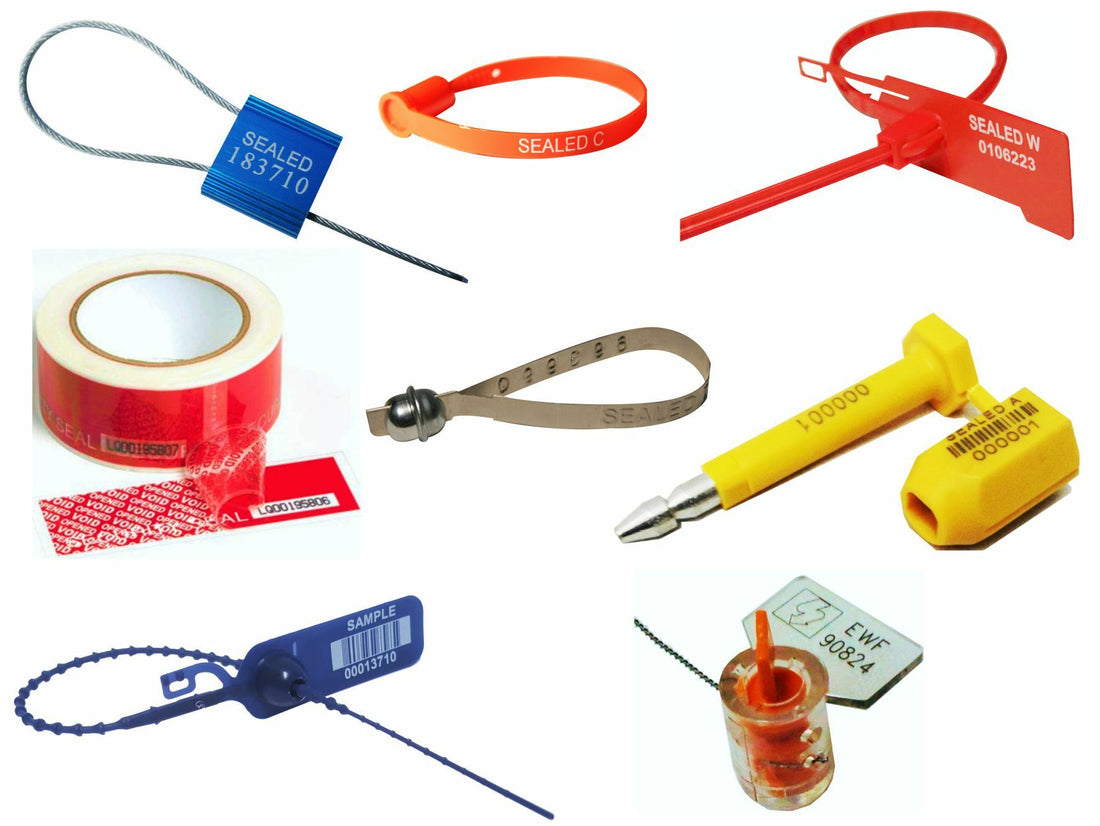In the realm of fraud prevention, high-security seals play a pivotal role in safeguarding assets, ensuring the integrity of goods, and mitigating risks associated with unauthorized access or tampering. Let's delve into the significance of high-security seals, including plastic, bolt, and cable seals, in fortifying fraud prevention strategies:
Physical Deterrent Against Tampering
High-security seals, such as bolt, cable, and plastic varieties, establish robust physical barriers, thwarting tampering or unauthorized access to valuable assets. Crafted from durable materials and equipped with intricate locking mechanisms, they deter potential offenders by their conspicuous presence. Bolstered by strong construction and complex designs, these seals effectively prevent tampering, ensuring the integrity of precious goods and assets. Their visibility serves as a deterrent against fraudulent activities, enhancing overall security measures within various contexts.
Traceability and Accountability
Throughout the supply chain and logistical procedures, high-security seals make traceability and accountability easier. Organizations can create a clear chain of custody by applying seals to equipment, packages, or containers. This allows them to record every step in the process, from the manufacturer to the end user. By allowing stakeholders to determine the precise location and state of items at any given time, traceability improves accountability and lessens the possibility of fraudulent actions like theft, diversion, or substitution.
Supply Chain Resilience and Continuity
By reducing interruptions brought on by fraudulent incidents or unauthorized access, high-security seals help to maintain the resilience and continuity of supply chain operations. Critical supply chain nodes can be protected from theft, counterfeiting, and sabotage by organizations using strong security protocols and seal verification procedures. The resilience of supply chain networks is further increased by the use of redundant security mechanisms, such as multi-factor authentication or dual-layered seals, which guarantee the continuing flow of goods and services even in difficult or unfavorable circumstances.
Cross-Industry Applications
While high-security seals are commonly associated with transportation and logistics, their applications extend across a diverse array of industries and sectors. Organizations across a variety of industries, including financial services, energy utilities, medicines, and food distribution, depend on high-security seals to safeguard assets, thwart fraud, and maintain regulatory compliance. High-security seals can be used to seal valuable goods, secure private papers, or protect vital infrastructure. Because of their adaptability and versatility, they are an essential tool for preventing fraud in almost any situation.
In conclusion, high-security seals such as plastic, bolt, and cable seals serve as indispensable tools in the fight against fraud and illicit activities. These seals bolster fraud prevention efforts, safeguard assets, and preserve the integrity of commercial transactions. By integrating high-security seals into their risk management strategies, organizations can instill confidence among stakeholders, uphold regulatory compliance, and protect against the ever-evolving threats posed by fraudulent behavior.

